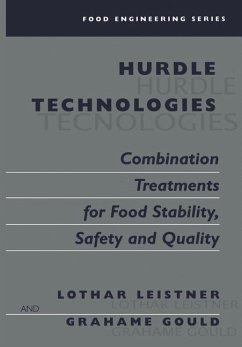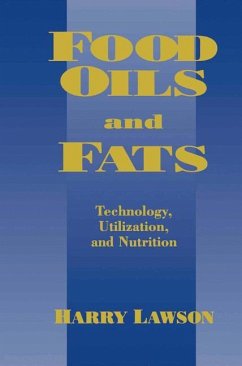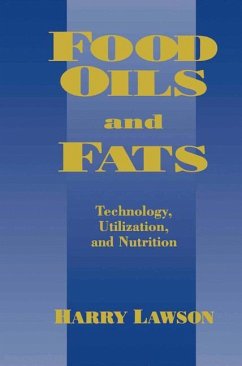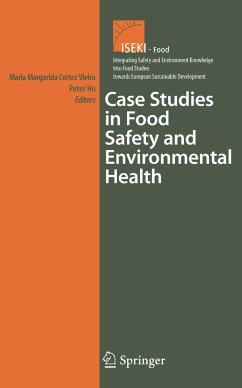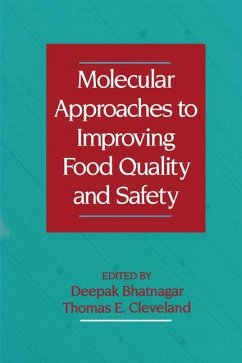
Molecular Approaches to Improving Food Quality and Safety

PAYBACK Punkte
19 °P sammeln!
Conventional food safety and quality research have traditionally dealt with the whole organism or food product, either plant or animal, or with the microorganisms that associate with these food-producing plants and ani mals at various stages of growth, development, and maturation. However, conventional research methods no longer are sufficient to bring about the improvements in quality and safety of foods that are demanded in today's marketplace by increasingly educated and sophisticated consumers. Improved quality has generally been thought to mean (l) unblemished products, particularly fruit...
Conventional food safety and quality research have traditionally dealt with the whole organism or food product, either plant or animal, or with the microorganisms that associate with these food-producing plants and ani mals at various stages of growth, development, and maturation. However, conventional research methods no longer are sufficient to bring about the improvements in quality and safety of foods that are demanded in today's marketplace by increasingly educated and sophisticated consumers. Improved quality has generally been thought to mean (l) unblemished products, particularly fruits and vegetables, and (2) the desired functional ity of protein, carbohydrates, and fats in grain oilseeds and the like to achieve the intended purpose in processing foods; for example, dough char acteristics to make bread or pasta. However, it also means the year-round ready availability of nutritious and appealing choices in all food groups that can be quickly and easily prepared. This promotes optimum nutrition, particularly necessary in children, the elderly, and special-needs groups, and it allows health conscious consumers to match their calorie intake with indi vidual needs to achieve and maintain desirable body weight.





